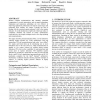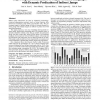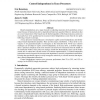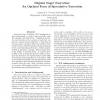315 search results - page 21 / 63 » Improving Performance by Branch Reordering |
IEEEPACT
2006
IEEE
14 years 2 months ago
2006
IEEE
Modern compiler transformations that eliminate redundant computations or reorder instructions, such as partial redundancy elimination and instruction scheduling, are very effectiv...
CORR
2009
Springer
13 years 6 months ago
2009
Springer
We present a new distributed algorithm for state space minimization modulo branching bisimulation. Like its predecessor it uses signatures for refinement, but the refinement proce...
ASPLOS
2008
ACM
13 years 10 months ago
2008
ACM
Indirect jump instructions are used to implement increasinglycommon programming constructs such as virtual function calls, switch-case statements, jump tables, and interface calls...
MICRO
1999
IEEE
14 years 1 months ago
1999
IEEE
Branch mispredictions are a major obstacle to exploiting instruction-level parallelism, at least in part because all instructions after a mispredicted branch are squashed. However...
MICRO
1995
IEEE
14 years 8 days ago
1995
IEEE
Instruction Level Parallelism (ILP) speedups of an order-of-magnitude or greater may be possible using the techniques described herein. Traditional speculative code execution is t...




